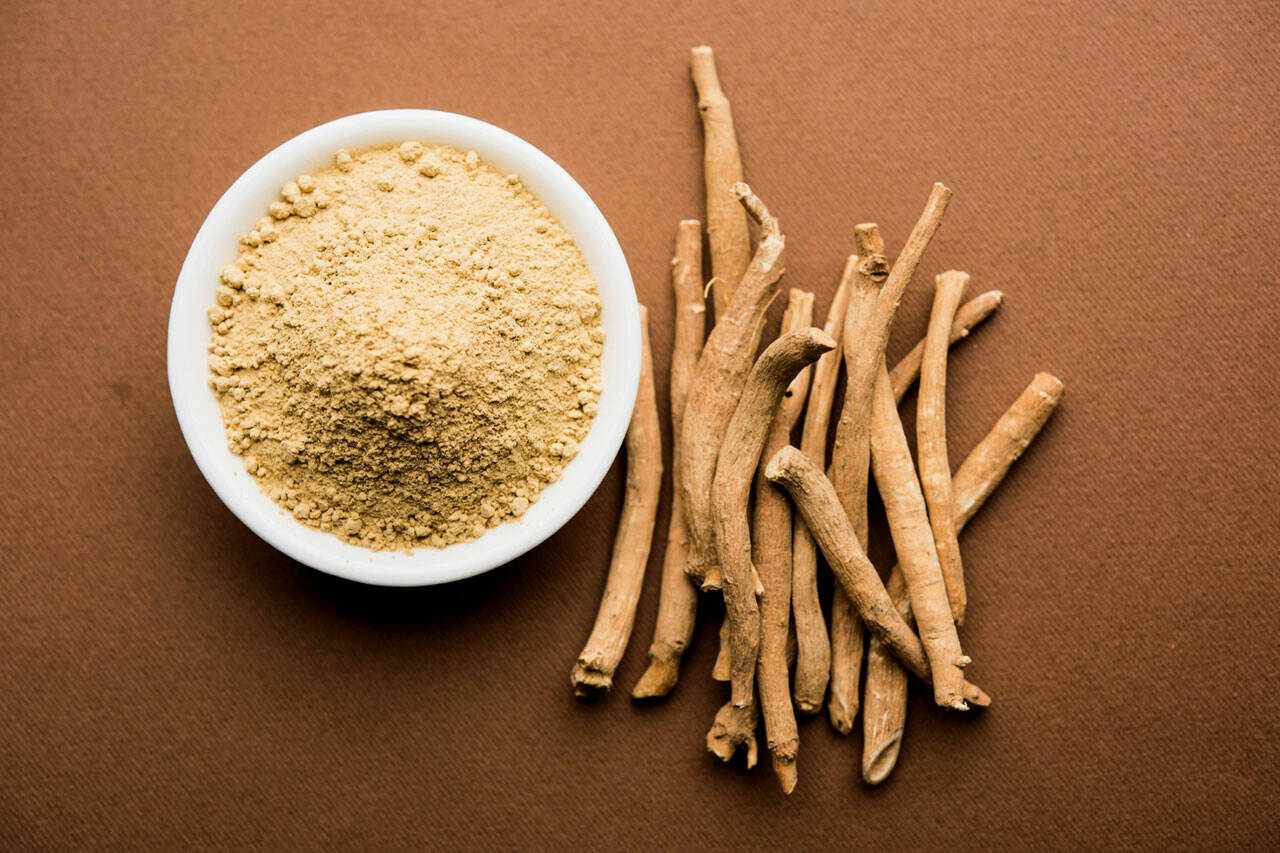Ashwagandha, an essential herb used in the Ayurveda practice, is a form of traditional Indian medicine. Studies show that ashwagandha extract may reduce cortisol levels (stress hormone) in those who suffer from chronic stress. This adaptogenic herb may also reduce depression, anxiety, and stress scores amongst certain types of people. While ashwagandha seems to be well tolerated, some people should take caution when consuming this supplement, such as if you have a thyroid condition.
Stress and anxiety have always been around. It’s really nothing new. But it seems to be getting worse, no thanks to our busy modern lifestyles that have caused anxiety levels to skyrocket among so many.
About 20 percent of adults in this country suffer from anxiety disorders, while nearly 13 percent of children have anxiety. You may first look to modern medicine to solve your problems, but older, traditional treatments like ashwagandha may be just the thing you need to treat your anxiety disorder.
Defining Ashwagandha
Ashwagandha comes from Ayurveda, a traditional form of Indian medicine. This medicinal plant, AKA Indian ginseng or winter cherry, also comes from other Indian and African traditional medicine. Ashwagandha, an essential herb and adaptogen, comes from a group of plants that helps the body adapt to physical or mental stressors.
Ashwagandha root comes from “Rasayana,” a Sanskrit word translating to “path of essence”. This Ayurvedic medicine practice refers to the science of lifespan lengthening. It’s thought that this root can affect the entire body—from blood pressure to the nervous system.
8 Ashwagandha benefits: the research
While more research certainly needs to be done, modern science has started to find some health benefits of ashwagandha. Studies reveal this herb could fight infection by increasing immune cells, lowering inflammation markers, improving sleep quality, and preserving cognitive function.
These benefits originate from withanolides, which are naturally-occurring steroidal lactones that are in the root.
Ashwagandha and Anxiety
Ashwagandha may have the ability to lower chronic stress and the physical and psychological effects that come with it.
The most common effect of ashwagandha is how it can lower cortisol, the stress hormone. Studies show people who take ashwagandha had much lower cortisol levels than those who were given a placebo.
Some cortisol in your system is good, as it helps with important functions like metabolism, but if you have chronically-elevated levels of this hormone, you could suffer from blood sugar issues or weight gain. This is why it’s good to reduce cortisol levels in supplementation.
Ashwagandha: easing anxiety beyond cortisol levels
One study found that ashwagandha helped ease significant stress levels. On a perceived stress scale ranked from 0 (no stress) to 40 (highest level of stress), all participants scored at a 14 or more at the trial’s beginning. After two months, the PSS of the placebo group dropped to 5.5 percent, while people who took extract of ashwagandha root had a 44 percent decrease in their stress score.
Anxiety: signs, solutions and symptoms
Those participants also completed questionnaires on the depression anxiety stress scale (DASS). This allowed researchers to determine how people experienced anxiety, depression, and stress separately with the herb both before and after treatment.
Results showed that the herb acted as both an antidepressant and anxiolytic, with a significant reduction by the end of the 60 days within the treatment group. The scores were: 77 percent for depression, 64 percent for stress, and more than 75 percent for anxiety. More studies will need to be done of course, to see if ashwagandha actually can incur these effects consistently.
The best course of action is a combination of therapy and prescription medication. But it may be beneficial to add in an herbal remedy such as ashwagandha after talking to your doctor. One animal study revealed the active compounds of ashwagandha root are as effective as the use of lorazepam.
That does not mean that ashwagandha supplements can cure all anxiety. However, it could provide help in the treatment of symptoms.
One small study comparing standard psychotherapy intervention vs. naturopathic care guided participants through deep-breathing exercises. The PT group got psychotherapy and placebo pills; the NC group received nutrition counseling, ashwagandha and a multivitamin. After eight weeks, the NC group experienced better effects on anxiety.
This means that ashwagandha could offer a great holistic treatment that could lower anxiety, boost mental health, and improve overall quality of life.
Ashwagandha: Dosage and Forms
The most common form of ashwagandha is a capsule. You can get them at any health store, supplement store, or online. Please note that the FDA does not regulate supplements such as ashwagandha as they do with prescription medications. Always do your homework and select a product and company you trust. Talk to your doctor if you’re unsure where to begin.
Many daily doses have been used in research with few adverse effects. Doses can go as high as 5 grams. In many studies, the dose is broken up so people could take the supplement two to four times a day rather than all at once.
Side effects
Studies show that most common side effects are mild. They include loose stools, sleepiness, and gastrointestinal discomfort.
Ashwagandha root extract could compromise thyroid function testing. Pregnant people should stay away from this supplement because it could cause miscarriages.
If you have anxiety, ashwagandha could be a good treatment add-on for you. Always talk to your doctor first.


